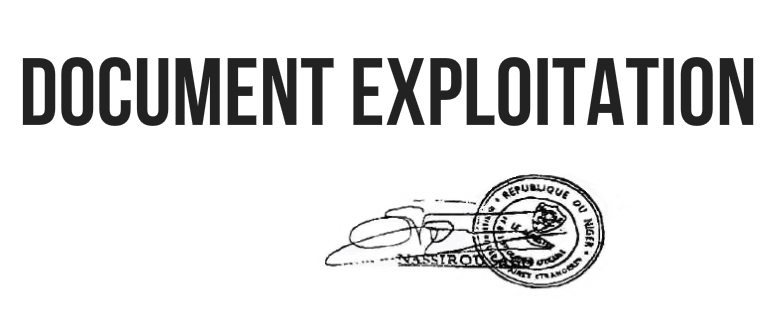The U.S. government's filing begins by stating that:
the United States wishes to reiterate its strong support for the claim of the plaintiff, Agudas Chasidei Chabad of the United States (“Chabad”), to gain possession of the collection of books, manuscripts, and other cultural artifacts at issue in this litigation (the “Collection”). The United States has maintained a consistent position that the Collection should be transferred to Chabad. In this regard, since the early 1990s, the Executive Branch has made extensive diplomatic efforts to help Chabad gain possession of the Collection. The United States has raised the issue at the Presidential level under several administrations, and in cabinet, Ambassadorial, and working-level diplomatic discussions throughout this period. The United States is currently pursuing diplomatic efforts toward this objective, and it intends to continue to do so.BUT, the United States says, for the Court to enter an order of civil contempt sanctions "is not appropriate," "would not be an effective means to achieve" the goal of the transfer of the archives, and "would not be consistent with the Foreign Sovereign Immunities Act" which, the United States argues, "does not permit a court to compel compliance with a specific performance order regarding property held by a foreign sovereign within the sovereign's own territory." Furthermore, the United States asserts that to provide such relief "would be contrary to the foreign policy interests of the United States."
While awaiting Chabad's formal response later this week, I wanted to offer a few initial comments on the government's arguments, which strike me as both lacking and rather odd.
First, the government's arguments seem belated and untimely. While the government purports to be making a (timely) argument that the Foreign Sovereign Immunities Act (FSIA) does not authorize the Court's contemplated use of contempt sanctions to enforce its order compelling the Russian Federation to surrender the archives that remain in Russian territory, the crux of the government's argument appears to be an indirect criticism of the underlying order itself which was issued back in July 2010. The United States never objected, however, to the content or breadth of the original 2010 order. In fact, after it was issued the U.S. State Department dutifully provided the Russian Federation with notice of the default judgment and the order via these December 2010 diplomatic notes.
Moreover, the United States also proactively filed an earlier statement of interest in the case in June 2011, which was after Chabad had moved for sanctions for Russia's failure to comply with the 2010 order, and in which the government only raised concerns about the possible seizure of Russian cultural property in the United States (concerns which Judge Lamberth later rejected as "unfounded" and "based on a misperception"). The government's June 2011 filing raised no concerns about either Judge Lamberth's July 2010 order nor the possible imposition of sanctions, a fact Judge Lamberth expressly noted in July 2011, stating that the "United States does not, at least in its latest statements, object to the imposition of sanctions."
Second, to the extent the United States really is solely focused on the issue of imposing contempt sanctions and not Judge Lamberth's initial order, the government's filing fails in my view to convincingly distinguish the D.C. Circuit's 2011 opinion in FG Hemisphere v. Democratic Republic of Congo, which held that imposing contempt sanctions against a foreign sovereign for failing to comply with a U.S. court order is consistent with the FSIA. The U.S. government had similarly argued in that case that the FSIA did not allow a District Court to impose contempt sanctions on a foreign sovereign. The D.C. Circuit, in an opinion written by Judge Silberman, rejected the government's position, which the court called "quite confusing."
As the D.C. Circuit noted in FG Hemisphere, which is equally true in Chabad, the authority of a court to impose monetary contempt sanctions on a foreign sovereign for failing to comply with an order is separate from the issue of any subsequent attempts to collect on those monetary sanctions. Put another way, even if Judge Lamberth does impose monetary contempt sanctions, Chabad may never obtain any of money, but that is very different than the issue of whether Judge Lamberth has the authority to impose them in the first place.
Finally, the government's remaining argument is that, even if the Court can impose contempt sanctions, it should exercise its discretion not to, both for foreign policy reasons and because, in the U.S. government's view, it would be "counter-productive" to diplomatic efforts designed to persuade the Russian Federation to transfer the archives voluntarily. While I think that these points are stronger than the purely legal arguments discussed above, I think these arguments are also undermined by the government's delay in making them.
Judge Lamberth's invitation to the U.S. government to submit its views clearly illustrates that he has made no final decision. However, given that the U.S. neither objected to the original order compelling the transfer of the archives nor objected initially to the possibility of sanctions and given that Judge Lamberth went so far as to issue an additional order in July 2011 demanding that the Russian Federation show cause why he should not impose contempt sanctions (which was also ignored), the government has put the Court in a position where if the Court decides now not to impose any sanctions after all, as the U.S. government suggests it should do, it arguably risks undermining the Court's orders and, in more subtle ways, the Court itself.







